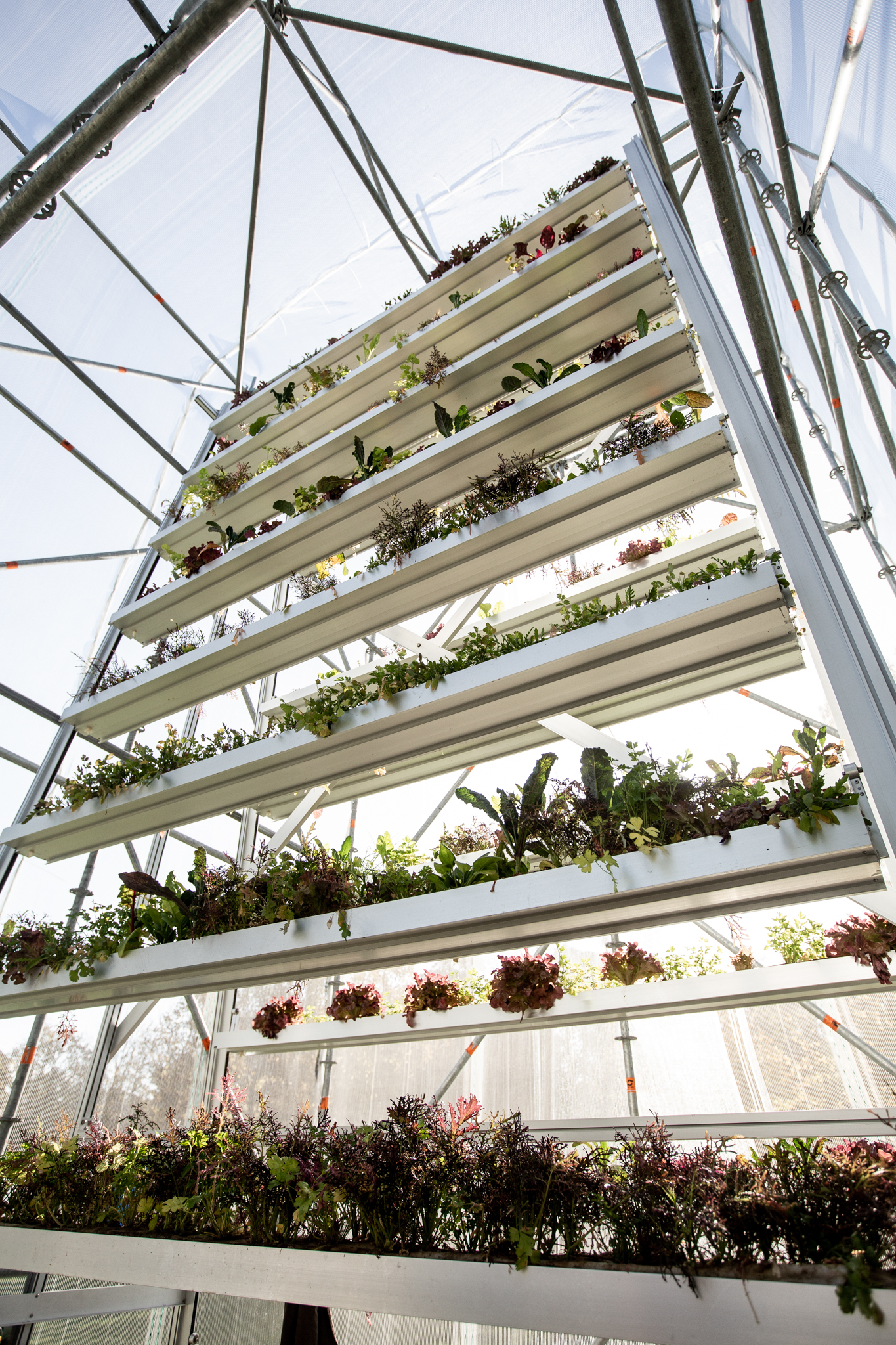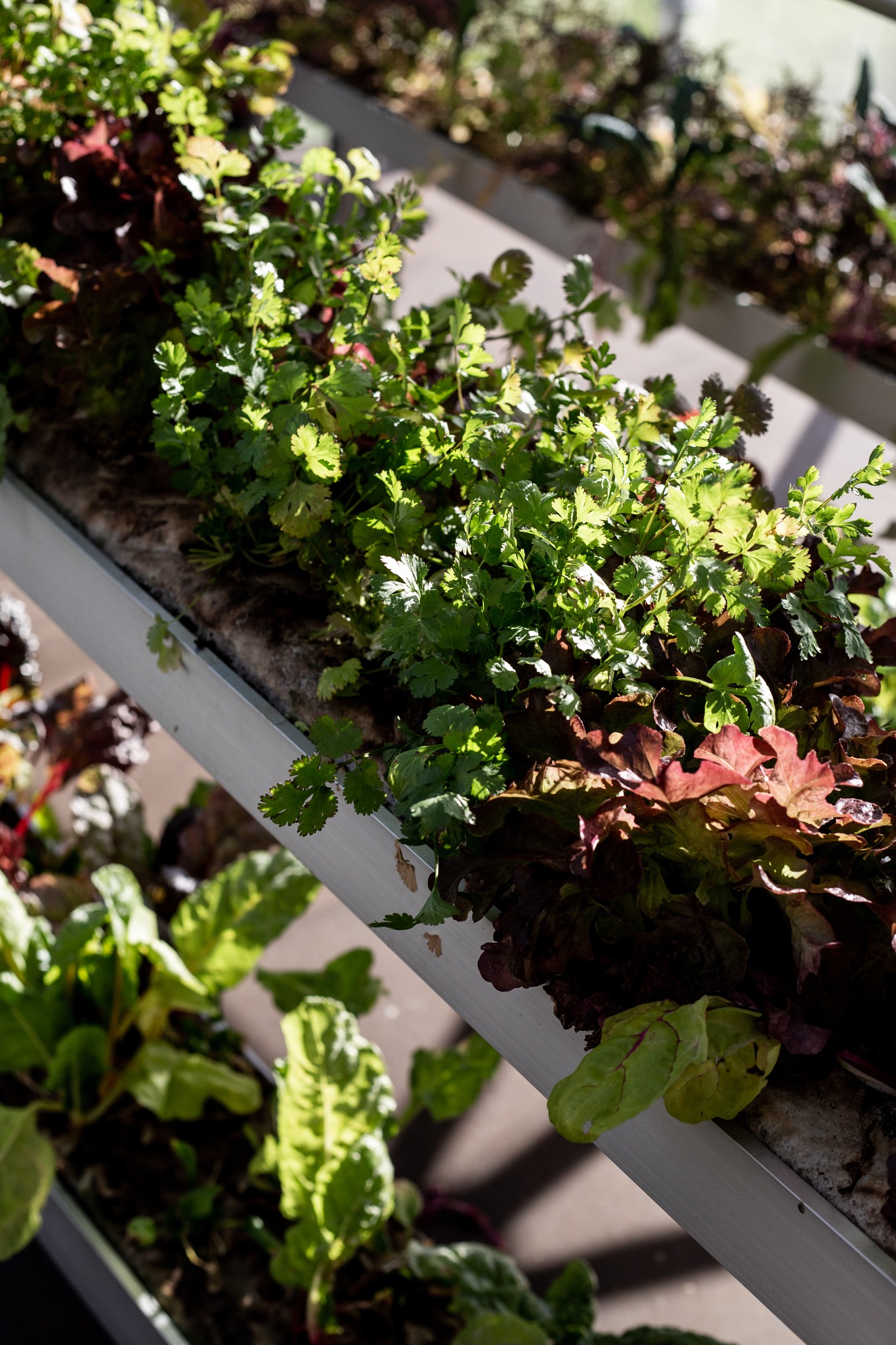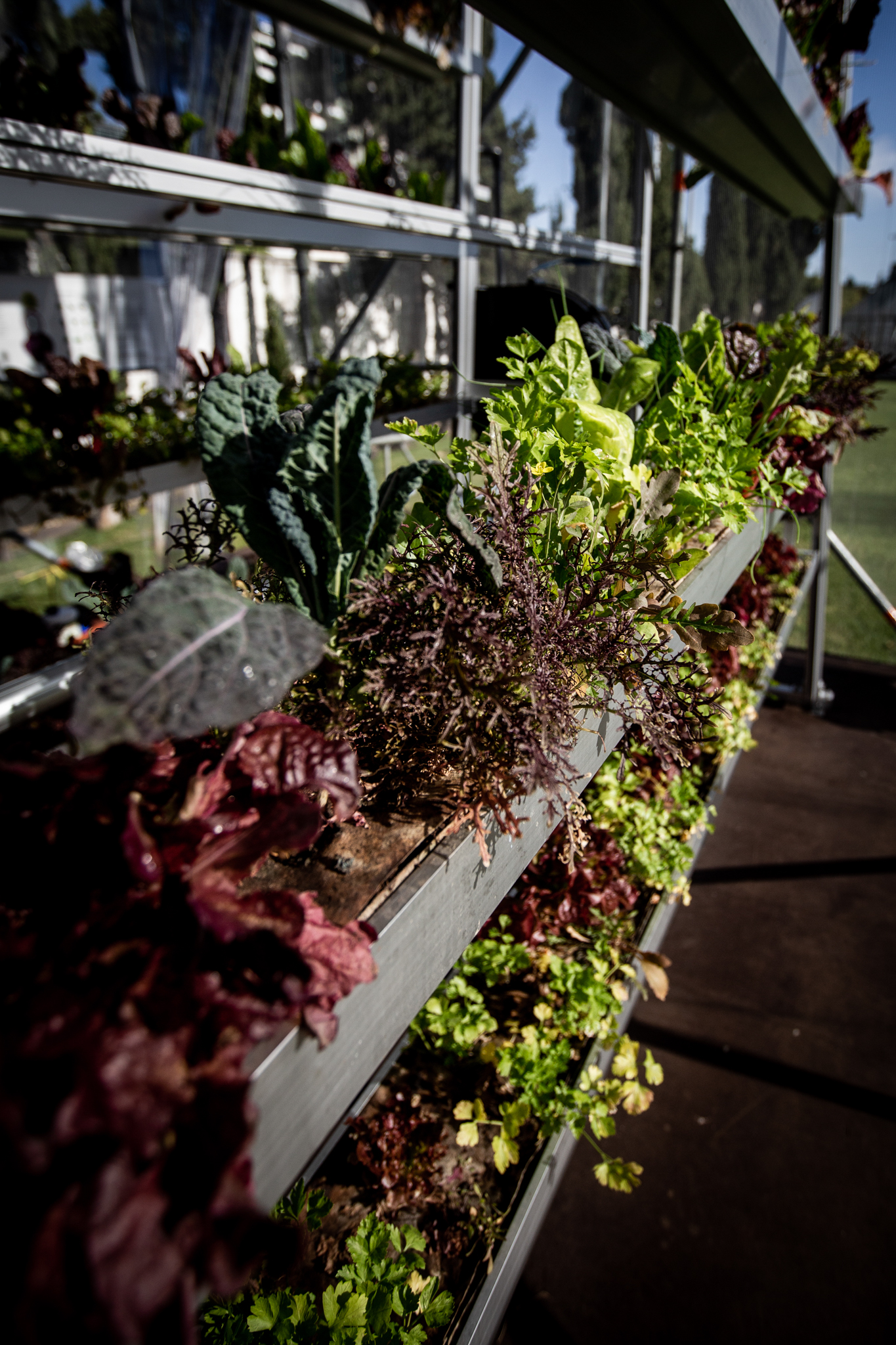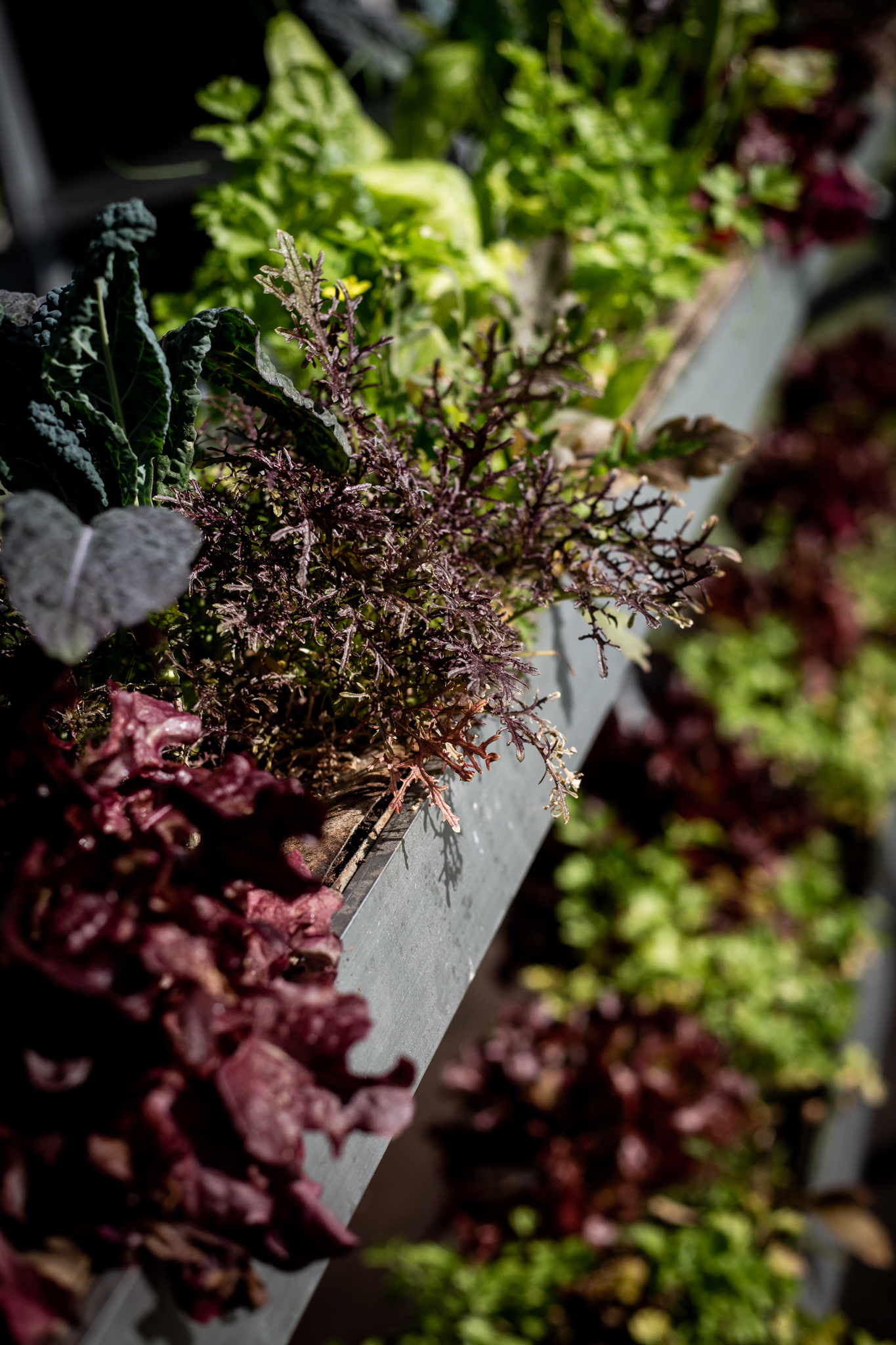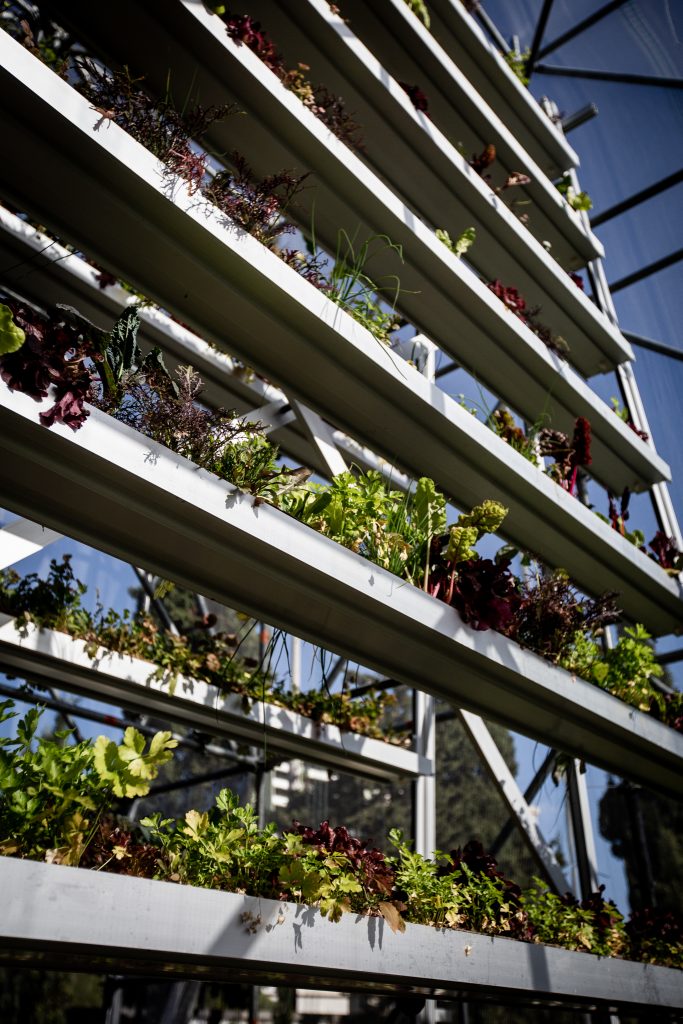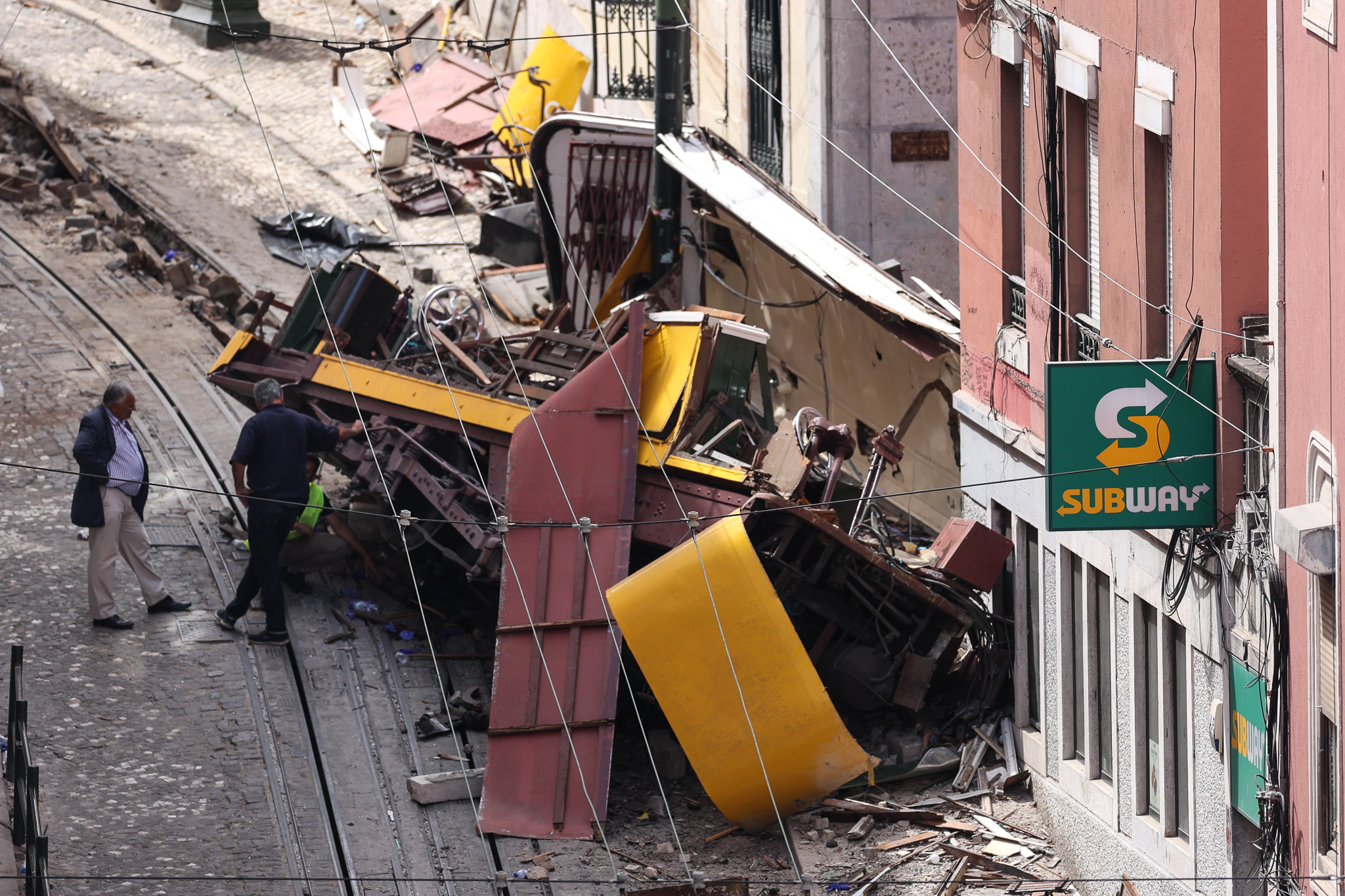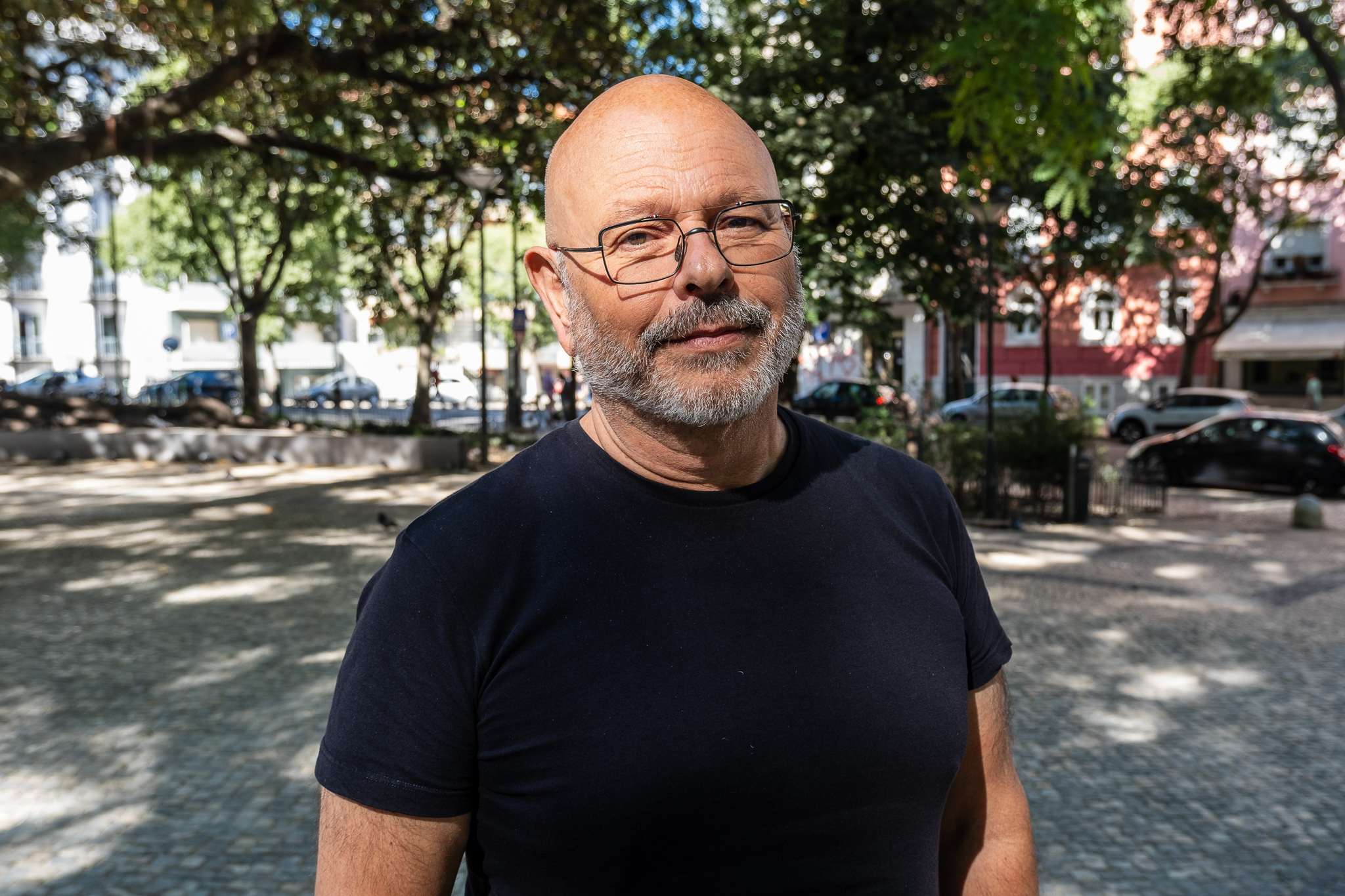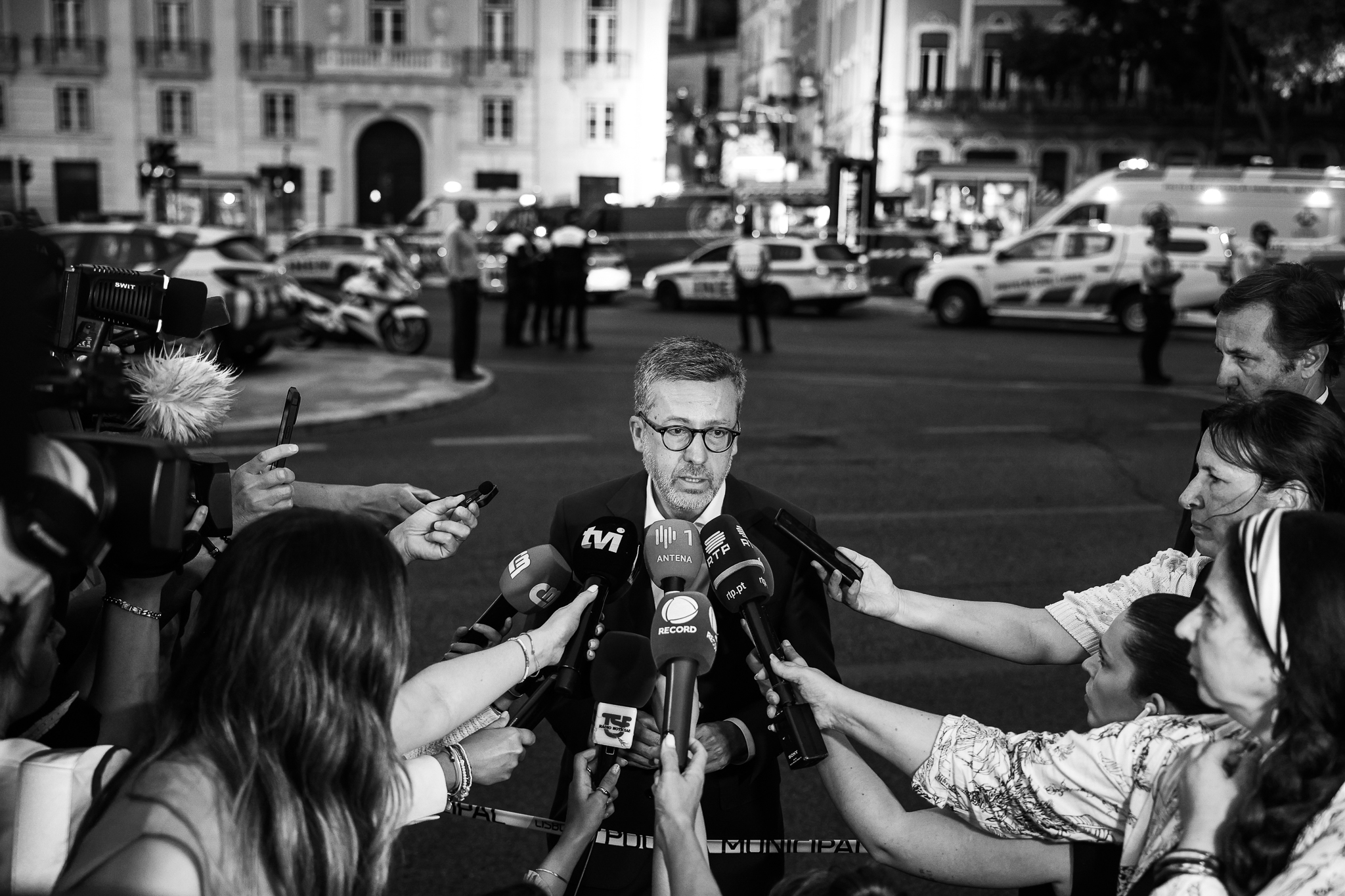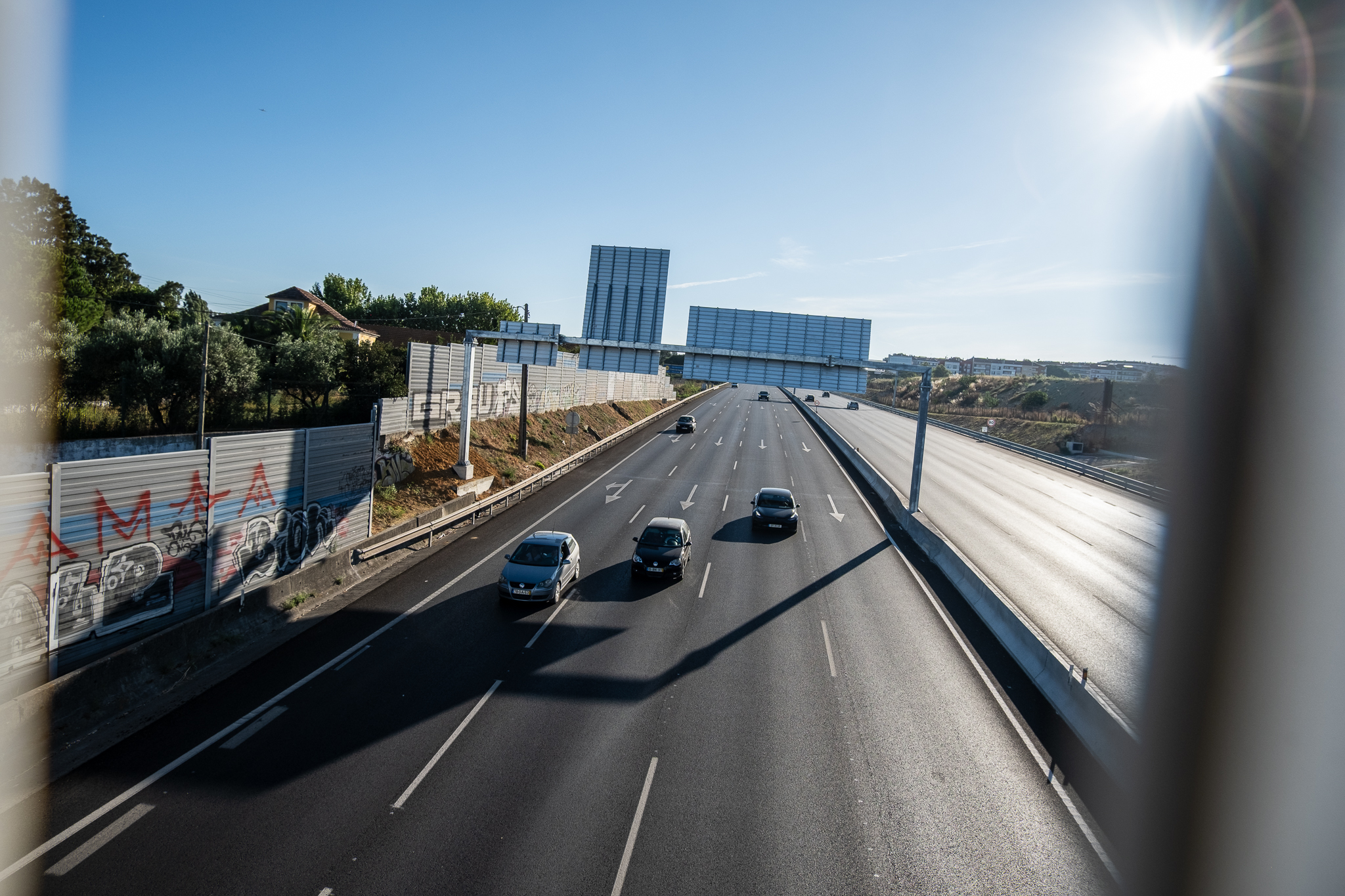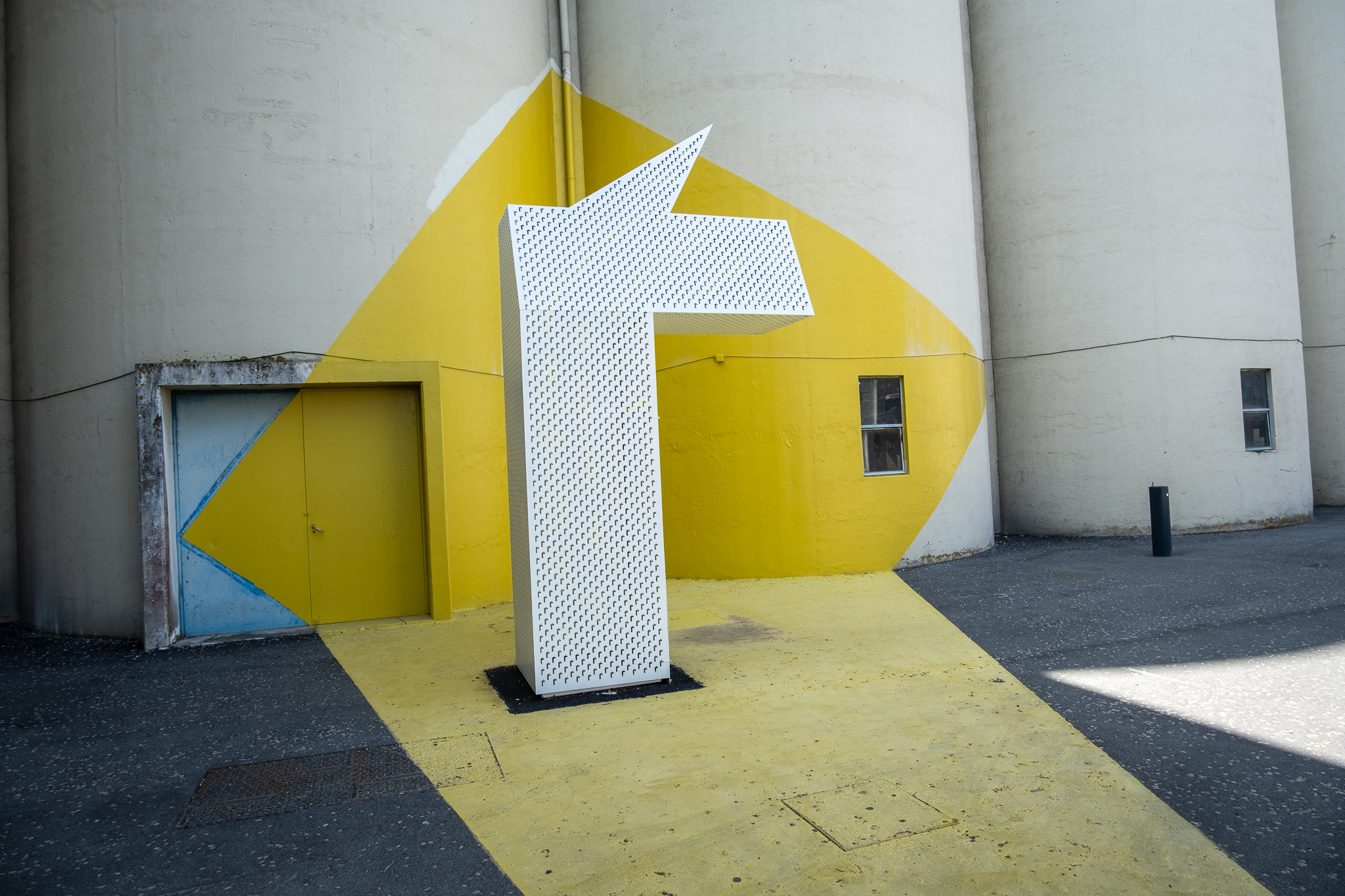At the Lisbon Museum, in Campo Grande, Upfarming's first vertical vegetable garden was born. And in 2022 a second one will be ready at the Aquilino Ribeiro Machado Garden and Horticultural Park, to serve the Alvalade community.
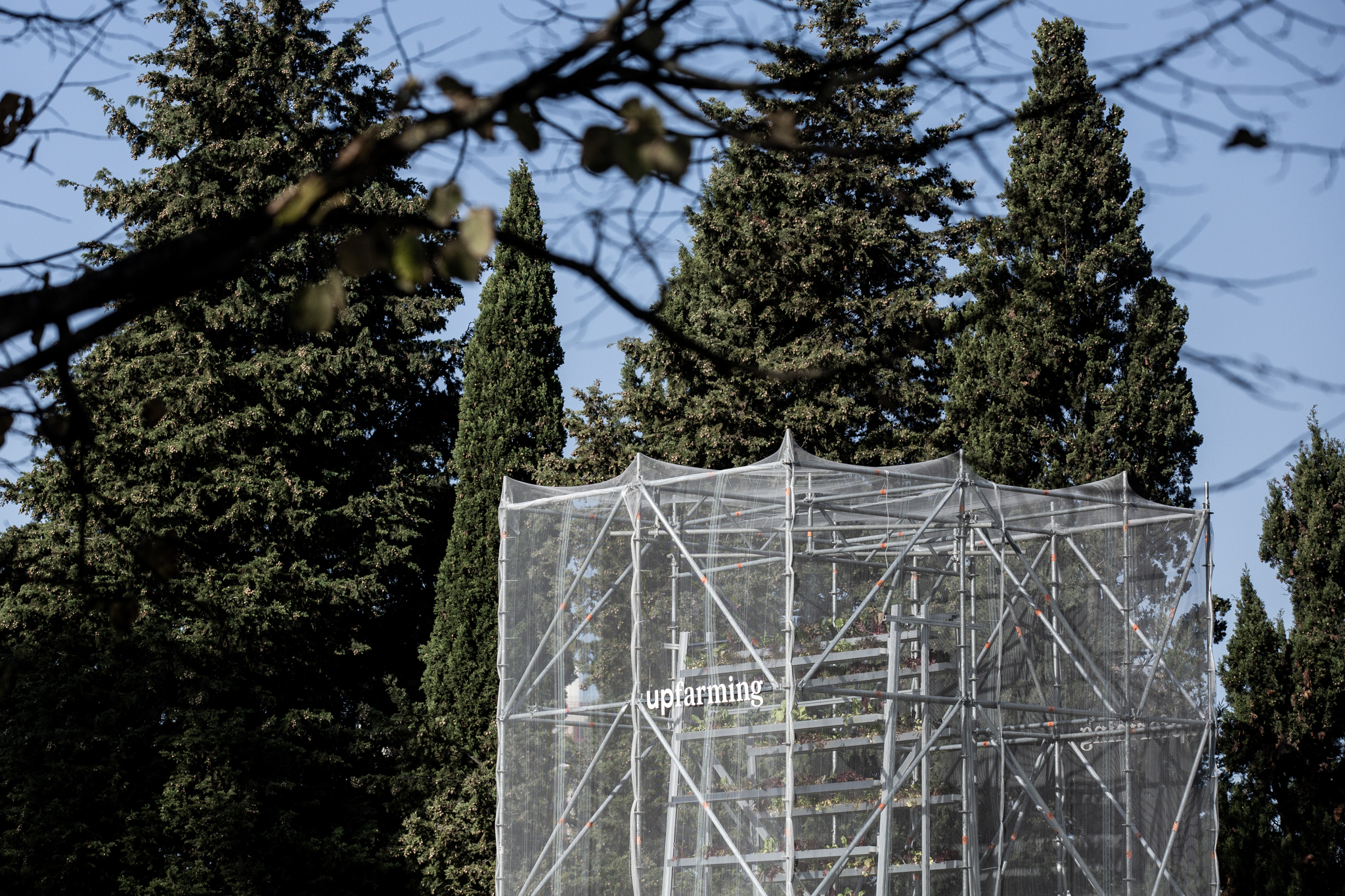
The history of vegetable gardens is a history of voids. Voids that over the centuries have been occupied for the purpose of sowing and harvesting. The soil is the space of choice for this process, with the production of gardens that serve both to feed and to generate income for those who cultivate them. But why not use the sky for the same purpose?
The idea makes even more sense when one reflects on life in cities, where so often the ground is already missing, and projecting upwards is the only solution. It was precisely with urban communities in mind that the Portuguese start-up Upfarming was born, presenting a pioneering solution in Europe to the challenges of our food system: the creation of rotating vertical gardens as a starting point for a circular and efficient system that produces healthy and sustainable food, with and for the people who consume it.
From theory to practice, these rotating vertical gardens - or upfarms - are materialized in six-meter-high towers made up of 22 2.4-meter-wide shelves that rotate slowly throughout the day. Driven by a hydraulic mill located at the base of the device - with an energy consumption similar to that of a domestic light bulb - this movement ensures that all the vegetables sown can benefit from the same exposure to sunlight. In addition, the rotary movement allows the plants to be watered throughout their cycle, and liquid fertilizers of natural origin to be introduced. It also allows all the gardening work to happen later at ground level, ensuring comfort and accessibility to any user who wants to use the vertical vegetable garden and participate in these systems, whether they are children, young people, adults, the elderly, or people with motor limitations. The upfarms are also protected by resistant greenhouses, which guarantee a stable and controlled environment throughout the year.
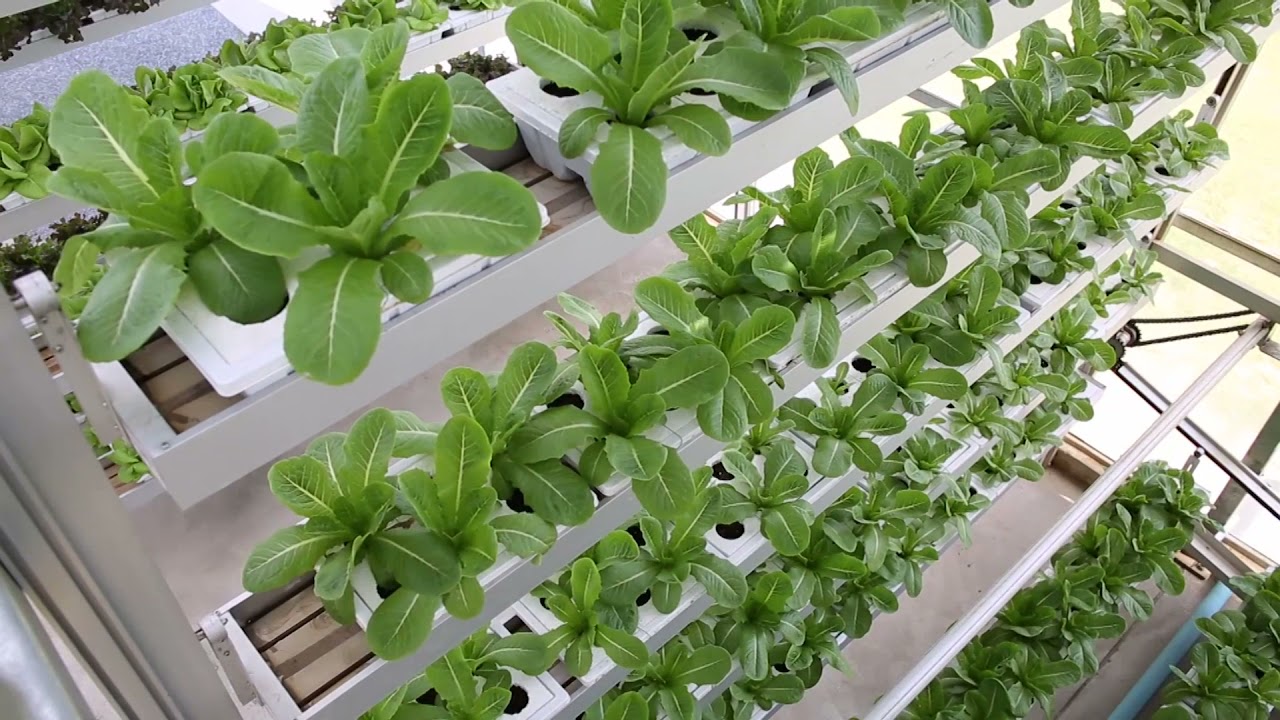
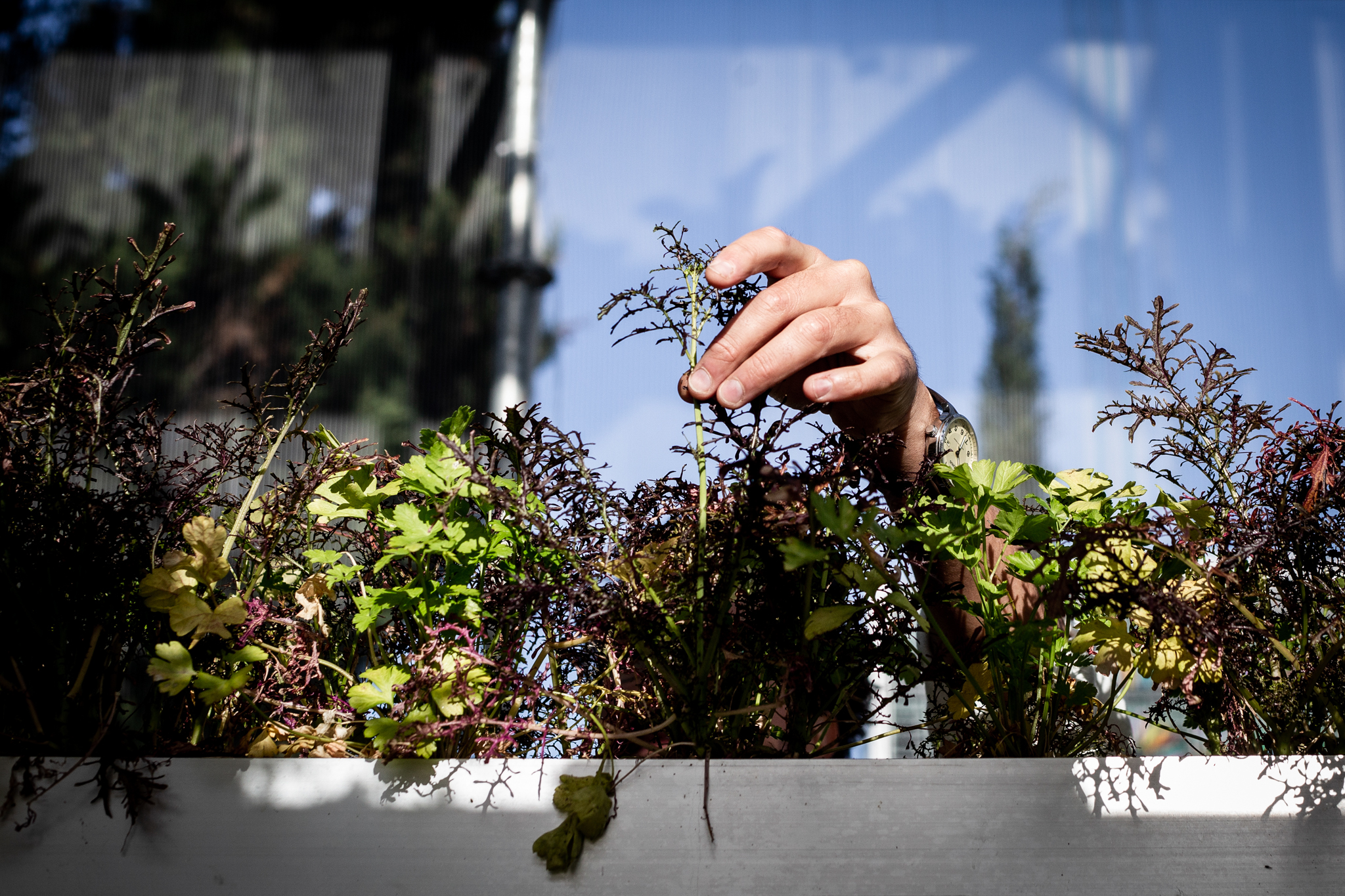
Upfarming believes it has a differentiating solution from existing vertical gardens, implemented in large warehouses or containers, which use expensive LED lights to photosynthesize the vegetables in production. In its upfarmsIt is the sunlight that does this work, thus taking advantage of the climate in a country where there is sunshine almost all year round. Modular, the upfarms They allow reductions in energy consumption by 50% and water consumption by 90%, according to Upfarming, in addition to having a production capacity ten times greater than conventional horizontal agriculture, says the start-up. Each tower can have over 800 different vegetables in production at the same time, produces about 100 kg per month (one ton per year), and can feed 40 people.
Upfarming began when Atelier Parto's team of architects was challenged by the Museum of Lisbon thinking about transforming the capital into a self-sufficient city, capable of promoting a collective consciousness about what is grown and consumed. Tiago Sá Gomesco-founder of this studio, had already crossed paths in the past with Bruno Laceya vertical garden specialist who had moved from London to make Lisbon his home. He asked for help in this reflection and vertical farming captured everyone's attention. The joint research and analysis resulted in eight case studies that rethink Lisbon's food chain through an urban model based precisely on the implementation of vertical gardens. But the more they researched, the more they realized that going from utopia to practice might not be a 30-year project, but something possible to accomplish in a few months.
At that time, Bruno came across Margarida Villas-Boaswho not only had over 17 years of experience in fundraising and management in Spain and the UK, but was at the time finishing a masters degree in climate change. His goal was precisely to work on issues of urban sustainability, so they stayed in touch. Like in a puzzle where all the pieces are different but fit together perfectly, the trio ended up getting together and started designing the future: their own and the future of the city they live in, Lisbon. In the fall of last year they decided to launch a crowdfunding to build the first vertical rotating agricultural tower in Europe. And in less than 24 hours they managed to raise the 30 thousand Euros proposed. This tower was eventually installed in the gardens of the Lisbon Museum, inviting visitors to the exhibition to observe in practice how this type of production works.
Upfarming is not only positioned as a company selling growing towers, looking at the agriculture as a service. The design and installation of the upfarms is only the starting point, because you can actually implement just one tower, but it is also possible to put several together and make a larger greenhouse. Upfarming's work is thus concerned with designing individual strategies for each community, be it a neighborhood or a company. The service includes the maintenance of the tower, the training of farmers who do the daily work of planting and harvesting, and also a component of educational activities. Upfarming says that its growing media, fertilizers, and pest control substances come from natural sources, and that no genetically modified products are used. On the other hand, all plants, seeds and other products are bought from Portuguese suppliers, unless it is absolutely necessary to look abroad.
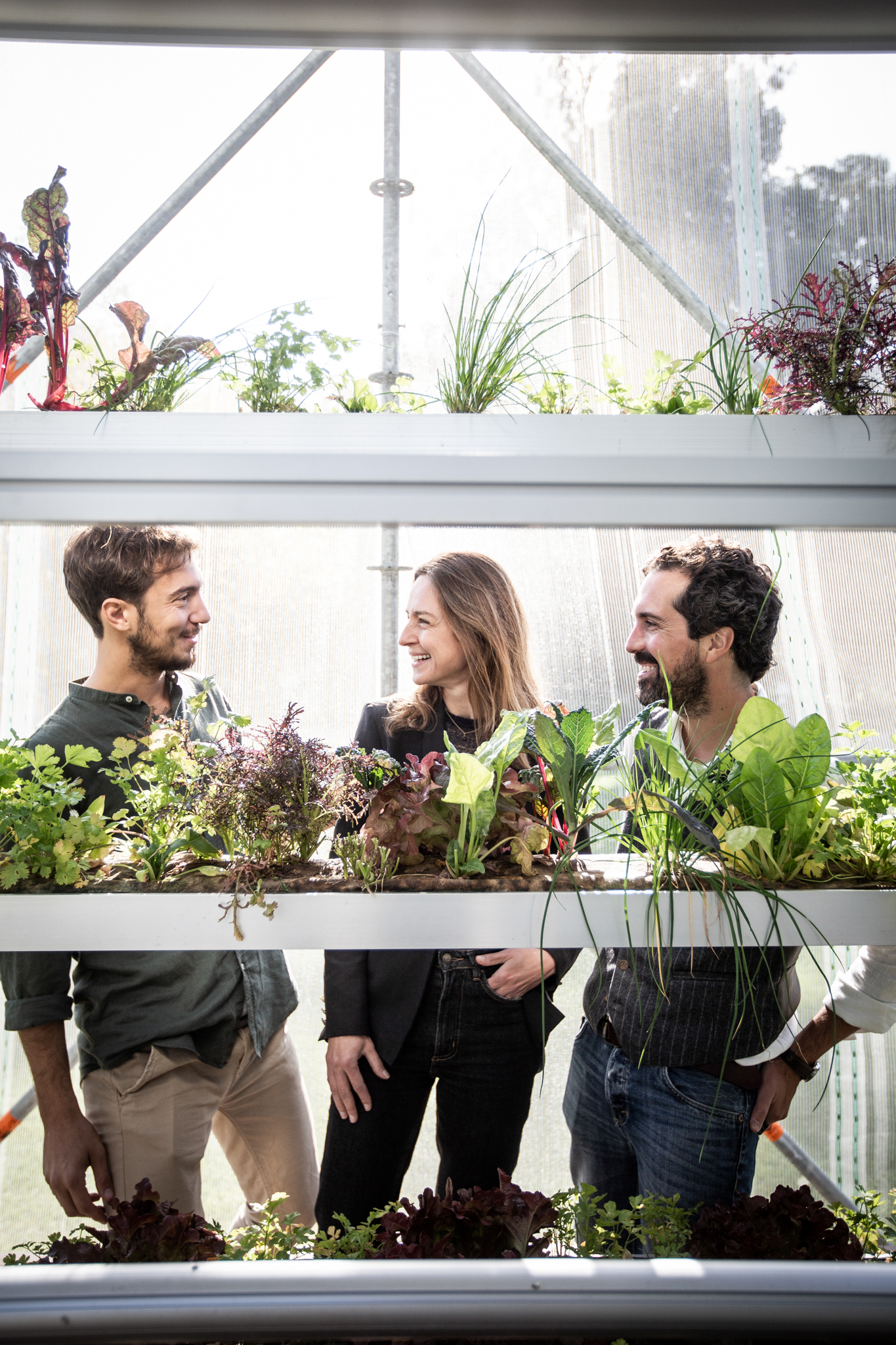
Besides the structure assembled for exhibition at the Lisbon Museum, in Campo Grande, Upfarming is developing a social project called "Do Céu Para a Mesa", which is financed by the Lisbon City Hall BIP/ZIP program, an initiative directed to neighborhoods and priority intervention areas of the city. Upfarming is creating a vertical vegetable garden in the Aquilino Ribeiro Machado Garden and Horticultural Park for the community of the Murtas, São João de Brito and Pote D'Água neighborhoods in Alvaladein order to promote food self-sustainability. Besides the primary purpose of food, it is a project that also aims to enhance social relations, revitalize the concept of neighborhood and generate income for that community. The garden at the Aquilino Ribeiro Machado Garden, located on Rua das Murtas, consists of four towers, which by the beginning of 2022 will already be rotating their more than 800 plants each, to produce about 400kg per month of harvest. The annual four tons of fresh, chemical-free vegetables will be grown with local residents, shared in community meals, educational cooking workshops, distributed to families in need, and sold locally.
